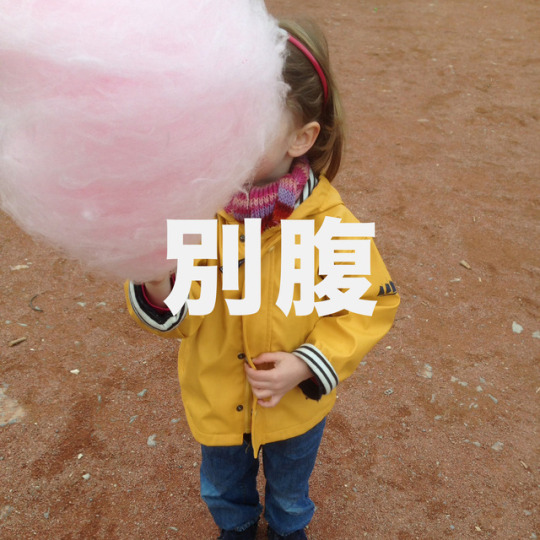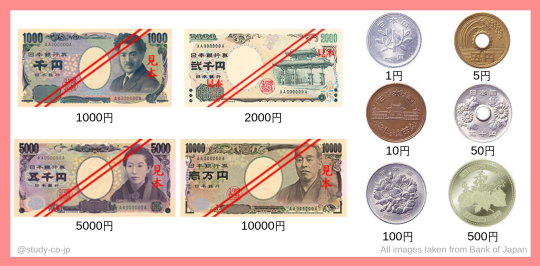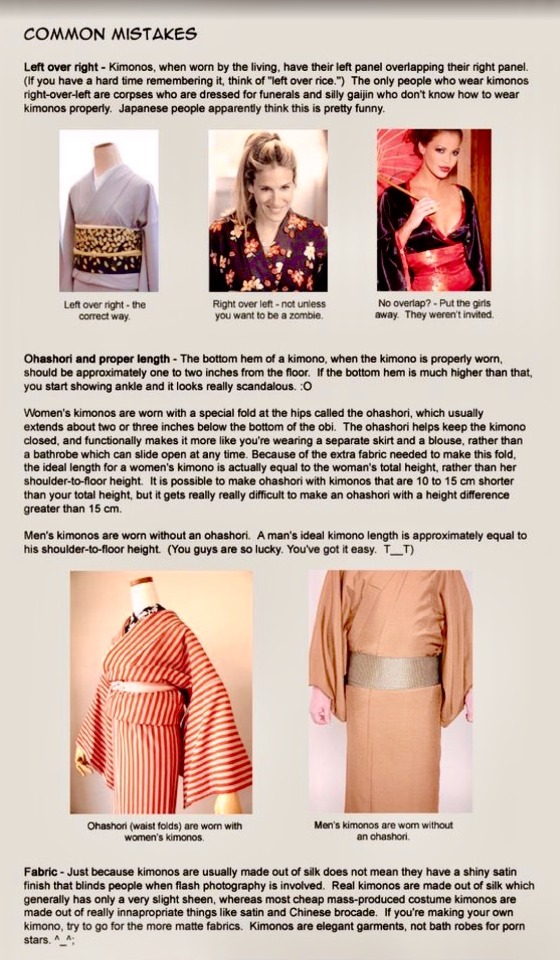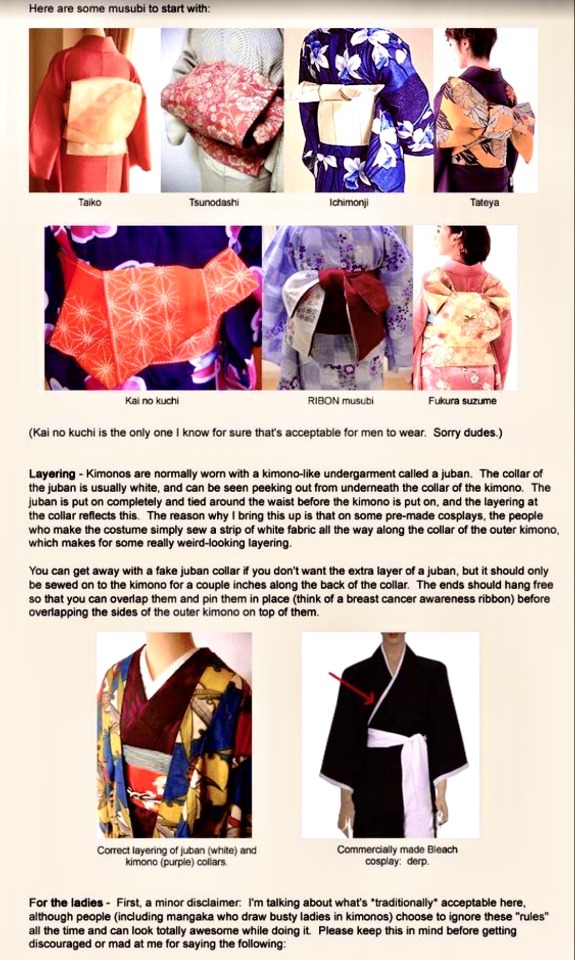Text
word of the day
にくきゅう 肉球 (ni•ku•kyu•u)
meaning: paw pad
kanji in this word:
肉 (ni•ku) - meat
球 (kyu•u) - ball / sphere

可愛い!
378 notes
·
View notes
Text
The 3 Whys?
どうして (dooshite)
なんで (nande)
なぜ (naze)

どうして (dooshite): Is neutral. You can use this at any time with anyone.
なんで (nande) : Is used in casual settings. You can definitely use it with your close friends, but you want to avoid using it when you want to be polite.
なぜ (naze): Is used in formal writing. It’s rarely used in speech.
🌸I hope the differences are clear!🌸
Extra info below if you want to take it further
There are also some phrases which mean something like “what for”:
どんなわけで donna wake de
どんな理由で donna riyuu de
どういうわけで dooiu wake de
どういう理由で dooiu riyuu de
The above four phrases all literally mean “with what kind of reasons”.
なんのために nan no tame ni
This one literally means “what for”.
If you use one of these phrases instead of どうして/なんで/なぜ, it sounds like you’re very curious to know the reasons.
517 notes
·
View notes
Text
How to Address A Letter to Japan







When writing the Japanese adress you can use romaji or normal Japanese. It doesn’t matter
Just make sure you write JAPAN in English at the bottom, that’s how the American postal service will know where to send it.
727 notes
·
View notes
Text
Japanese lesson: ✎Tumblr
タンブラー (tanburaa) - tumblr ブログ (burogu) - blog 本垢 (honaka) - real account フォロワー (forowaa) - follower 相互フォロー (sougo foroo) - mutual フォロバしてない人 (foroba shitenai hito) - a person who’s not following you back クラスタ (karasuta) - fandom ブロる (buroru) - to block リブログ (riburogu) - reblog 写真をアップする (shashin wo appu suru) - to post a picture フォローしてくれてありがとう (foroo shite kurete arigatou) - thank you for following me!
4K notes
·
View notes
Photo

かっこいい/かわいい熟語のリスト A list of cool/cute Japanese compound words
別腹(べつばら)→ (n.) having room for dessert even if one is full (lit. extra stomach)
口寂しい(くちさびしい)→ (n.) the feeling of wanting to put something in one’s mouth (lit. mouth + lonely)
��い違い(くいちがい)→ (n.) diverging or conflicting opinions (lit. eating + different)
食い倒れ(くいだおれ)→ (n.) getting into debt by extravagance in food (lit. eating + bad debt/collapse)
寝酒(ねさけ)→ (n.) night cap ⭐︎☽ (lit. sleep + alcohol)
昼寝(ひるね)→ (n.) siesta, nap (lit. daytime + sleep)
寝坊(ねぼう)→ (n.) late riser, sleepyhead (lit. sleep + someone who~)
朝寝(あさね)→ (n./–suru v.) sleeping late in the morning (lit. morning + sleep)
早起き(はやおき)→ (n.) early riser (lit. early + wake up)
歩き回る(あるきまわる)→ (v.) walking about (lit. walk + turn)
水遊び(みずあそび)→ (n.) splashing about (lit. water + play)
長話(ながはなし)→ (n.) a long talk (lit. talk + long)
話々(はなしばなし)→ (n.) small talk (lit. talk + talk)
昔話(むかしばなし)→ (n.) legends, old tales, reminiscence (lit. olden days + talk)
心強い(こころずよい)→ (–i adj.) reassuring, heartening (lit. heart + strong)
猫好き(ねこずき)→ (n.) cat lover (lit. cat + like)
猫舌(ねこじた)→ (n.) dislike of hot drinks or food (lit. cat + tongue)
積ん読(つんどく)→ (n./–suru v.) buying books and not reading them (lit. pile up/stack + read)
忘れ物(わすれもの)→ (n.) something you left behind, forgot (lit. forgot + thing)
蛇足(だそく)→ (n.) useless addition, redundancy (lit. snake + legs) ˉ̶̡̭̭ ( ´͈ ᗨ `͈ ) ˉ̶̡̭̭
3K notes
·
View notes
Text
🌸Handy Japanese Relationship Phrases🌸

🍡1. What is your name? [namaewa nandeska]
名前は なんですか
🌱2. Are you in a relationship? [koibitowa imaska]
こいびとは いますか
"I'm not in a relationship.”, [watashiwa imasen]
私は いません
"I am in a relationship.” [watashiwa imas]
私は います
🍡3. Could I have your number/〇〇?. [〇〇 oshiete kudasai]
**The 〇〇 refers to the phone number, email address, SNS account, and other similar information you’d like to get from the person in question.**
Please tell me your phone number.
[denwabango oshiete kudasai]
でんわばんご おしえて ください
🌱4. (That is) Such a lovely/beautiful name! [sutekina namaedesne]
すてきな 名前ですね
🍡5. You look cute today./That outfit looks cute. [kyo:nofuku kawai:desne]
今日 の ふく 可愛 ですね
You look handsome/cool today./That outfit looks great on you. [kyo:nofuku kakkoi:desne]
今日 の ふく かっこい ですね
🌱8. Would you like to take a walk with me? [sanponi ikimasenka]
さんぽに 行きませんか
🍡9. Would you like to go to lunch/dinner with me? [isshoni gohan ikimasenka]
いっしょに ごはん 行きませんか
🌱10. I had a wonderful time today! Let’s go out again together. [kyo:wa tanoshikattades. mata asobitaina]
今日 は 楽しかったです また あそびたいな
Next time, I’d love to go to 〇〇 (with you). [kondo 〇〇ni ikitaides]
こんど 〇〇に 行きたいです
🍡11. I like you. [sukides]
This is the phrase you use when you want to confess to the person you like.
好きです
🌱12. Will you go out with me? [tsukiattekudasai]
After you’ve confessed how you feel, you can ask them to become your boyfriend, girlfriend, or partner.
つきあってください
🍡15. I want to make you happy. [anatawo shiawaseni shitaides]
This phrase is handy if you want to propose to someone.
あなたを しあわせに したいです
🌱🌼!Happy Travels Guys!🌼🌱
664 notes
·
View notes
Text
i just learned how to ask for no ice in drinks
which is like…the #1 thing i ask for in america so i’ve been struggling in japan with So Much Ice in my drinks but here ya go:
ドリンクは両方とも氷抜きでお願いします。
ドリンクはりょうほうともこおりぬきでおねがいします。
dorinku wa ryouhou tomo koori nukide onegaishimasu.
634 notes
·
View notes
Text
The Hidden Dangers of “Ganbaru”

I don’t know what the first word of Japanese I learned was. Probably “hai = yes” or “sakabatou = reversed-edge blade” because I’m that kind of nerd lol.
But I can say with certainty that one of the earliest words I learned was “ganbaru.” Whether it’s the cute girl giving an encouraging “ganbatte!” to her sempai, or the beleaguered protagonist forcing himself to stand back up as he declares, “Ore ha mada ganbaru!” it’s a word that is rampant in anime, manga, and actual daily conversation. I daresay it’s one of the most commonly used words in the language.
Most of the time, “ganbaru” is defined as “doing one’s best,” and for 10 years, I thought that was what it meant.
But on Monday I kinda sorta had a panic attack and a guy from HR, who also acts as a counselor for troubled employees, came to talk with me. The conversation was entirely in Japanese, but I told him:
元のomoi-no-hokaに戻るように頑張っています。 Moto no omoi-no-hoka ni modoru you ni ganbatte imasu. I’m doing my best to get back to my old self.
And he told me, “Y’know what? My least favorite word ever is ‘ganbaru.’ Do you want to know why?”
Of course I did.
We already know the metaphorical meaning of “ganbaru,” which is “to do one’s best,” as I stated above. But take a look at the kanji–what is the literal meaning of the word?
頑 gan
Stubborn, foolish
張る baru (or haru, if it’s on its own)
To stretch
In other words, “ganbaru” literally means “to foolishly stretch oneself.”
He told me, “Pretend that you’re a rubber band holding together this team. And you keep stretching yourself more and more and more to do more and help others. What’s going to happen eventually? That rubber band is going to snap, and no one wants that to happen to you.
“So don’t ganbaru. Just do what you can, when you can. That’s enough. That’s more than enough, actually.”
This was really eye-opening for me, and it actually made me feel guilty for all the times I’ve said “ganbatte!” in an effort to encourage someone, when in actuality I was asking them to push themselves beyond their bounds (whether they realized it or not). I think that exceedingly few Japanese people think of the word ganbaru’s literal meaning.
But from now on, I’m going to make a conscious effort to stop using that word.
Depending on the situation, I think I’ll try substituting words in the following ways:
頑張ります! → 一生懸命努力します。
Ganbarimasu! → Isshoukenmei doryoku shimasu.
I’ll do my best! → I’ll do my best effort.
*+*+*+*+*+*+*+*+*+*+*+*+*
頑張ってね! → 応援してる!OR 私に何かできることある?
Ganbatte ne! → Ouen shiteru! OR Watashi ni nanika dekiru koto aru?
Hang in there! → I’m supporting you! OR Is there anything I can do to help?
I recommend that you attempt to rethink this word and your usage of it as well. Like I said, I think that almost no Japanese person really thinks deeply about the meaning of the word, and that’s why it’s used as much as it is. So it’s not a bad thing to say. But now that I’m cognizant of its literal meaning and the implications that come with it, I’d like to use it less, both regarding myself and others.
636 notes
·
View notes
Text
Japanese hospital vocab
国立病院 (こくりつびょういん)- national hospital
大学病院 (だいがくびょういん)- university hospital
診療所 (しんりょうじょ)- diagnosis and treatment centre
クリニック・医院 (いいん)- clinic
保健所(ほけんじょ)- health centre
救急車(きゅうきゅうしゃ)- ambulance
医者(いしゃ)- doctor
看護婦(かんごふ)- nurse
看護士(かんごし)- male nurse
薬剤師(やくざいし)- pharmacist
受付(うけつけ)- reception
病棟(びょうとう)- ward
診療室(しんりょうしつ)- consultation room
レントゲン室(レントゲンしつ)- x-ray room
検査室(けんさしつ)- examination room
手術室(しゅじゅつしつ)- surgery room
集中治療室(しゅうちゅうちりょうしつ)- intensive care room
リハビリテーション室 - rehabilitation room
薬局(やっきょく)- dispensary/pharmacy
1K notes
·
View notes
Text
Japanese Space Vocabulary
english - japanese

space/universe - 宇宙 (うちゅう - uchū)
alien - 宇宙人 (うちゅうじん - uchūjin)
astronaut - 宇宙飛行士 (うちゅう ひこうし - uchūhikōshi)
spaceship - 宇宙船 (うちゅうせん - uchūsen)
spacesuit - 宇宙服 (うちゅう ふく- uchūfuku)
star - 星 (ほし - hoshi)
planet - 惑星 (わくせい - wakusei)
comet - 彗星 (すいせい - suisei)
asteroid - 小惑星 (���ょう わくせい - shō wakusei)
meteor - 流星 (りゅうせい - ryūsei)
meteor shower - 流星群 (りゅうせい ぐん- ryūseigun)
galaxy - 銀河˙’系’ ( ぎんが’けい’ - ginga’kei’)
nebula - 星雲 (せいうん - seiun)
sun - 太陽 (たいよう - taiyō)
solar system - 太陽系 (たいようけい - taiyōkei)
moon - 月 (つき - tsuki)
eclipse - 食 (っしょく - shoku)
solar eclipse - 日食 (にっしょく - nisshoku)
lunar eclipse - 月食 (げっしょく - gesshoku)
constellation - 星座 (せいざ- seiza)
a profound, mysterious sense of the beauty of the universe - 幽玄 (ゆうげん -yuugen)
we are not alone - 私たちは一人じない ( わたし-たち は ひとり じ ない - watashitachi wa hitori jinai)
913 notes
·
View notes
Text
japanese money & shopping
えん 円 (e•n) - the official currency of japan, the yen (¥)
おかね お金 (o•ka•ne) - money

there are currently four types of bills in circulation: ¥1,000, ¥2,000 (but these are very rare), ¥5,000, and ¥10,000.
there are currently six types of coins in circulation: ¥1, ¥5, ¥10, ¥50, ¥100, and ¥500.
all the bills and coins differ in size!
although many stores in japan take credit cards, cash is the most common method of payment.
places to shop
おみせ お店 (o•mi•se) - store
デパート (de•pa•a•to) - department store
スーパー (su•u•pa•a) - supermarket
ショッピングモール (sho•ppi•n•gu•ma•a•ru) - shopping mall
ほんや 本屋 (ho•n•ya) - bookstore
buying things
かいものをする 買い物をする (ka•i•mo•no•o•su•ru) - to shop [lit. to do shopping]
いくら 幾ら (i•ku•ra) - how much
たかい 高い (ta•ka•i) - expensive
やすい 安い (ya•su•i) - cheap
some useful shopping expressions
これはいくらですか。 = How much is this?
それは...円です。 = This is … yen.
...をください。 = Please give me…
used for concrete items (i.e. when buying or ordering an item)
...をおねがいします。 = Please give me…
however, the above is used for favors and requests rather than concrete items.
1K notes
·
View notes
Text
N4 verb list
会う (あう)- to meet
合う (あう)- to fit, to suit
上がる (あがる)- to go up
開く (あく)- to open
空く (あく)- empty, with space
開ける (あける)- to open
あげる- to give
上げる (あげる)- to rise
遊ぶ (あそぶ)- to play
浴びる (あびる)- to take a shower
洗う (あらう)- to wash
有る (ある)- to be, to exist
ある- to possess
歩く (あるく)- to walk
言う (いう)- to say, to tell
行く (いく)- to go
いる- need, must have, be required
いる- to exist
入れる (いれる)- to insert, to put in
歌う (うたう)- to sing
生まれる (うまれる)- to be born
売る (うる)- to sell
起きる (おきる)- to get up, to stand up
置く (おく)- to put
送る (おくる)- to send
押す (おす)- to push
覚える (おぼえる)- to memorize, to remember
泳ぐ (お��ぐ)- to swim
降りる (おりる)- to get off
終わる (おわる)- to end
買う (かう)- to buy
返す (かえす)- to return an object
帰る (かえる)- to return home
掛かる (かかる)- to take time or money
書く (かく)- to write
かける- to wear
かける- to make a phone call
貸す (かす)- to lend
冠る (かぶる)- to put on a hat
借りる (かりる)- to borrow
聞こえる (きこえる)- to hear, can hear, be audible
消える (きえる)- to go out, to vanish
決まる (きまる)- to be decided
決める (きめる)- to decide
聞く (きく)- to listen
切る (きる)- to cut
着る (きる)- to wear, to put on
来る (くる)- to come
くださる- to give (to me) respectful
比べる (くらべる)- to compare
暮れる (くれる)- to get dark
くれる- to give (me) simple form
消す (けす)- to turn off, to switch off
答える (こたえる)- to answer
困る (こまる)- to be in trouble
込む (こむ)- to be crowded
壊す (こわす)- to break
壊れる (こわれる)- to be broken
咲く (さく)- to blossom
探す (さがす)- to look for, to search
さす- to open an umbrella
下がる (さがる)- to get down
下げる (さげる)- to lower
差し上げる (さしあげる)- to give (respectful)
騒ぐ (さわぐ)- to make noise, to be excited
触る (さわる)- to touch
叱る (しかる)- to scold
知らせる (しらせる)- to notify
調べる (しらべる)- to investigate
死ぬ (しぬ)- to die, to pass away
閉まる (しまる)- to close
閉める (しめる)- to close
締める (しめる)- to fasten a belt
知る (しる)- to know
知らせる (しらせる)- to notify
調べる (しらべる)- to investigate
過ぎる (すぎる)- to exceed
進む (すすむ)- to make progress
捨てる (すてる)- to throw away
滑る (すべる)- to slide, to slip
吸う (すう)- to breath, to smoke
住む (すむ)- to live, to reside somewhere
済む (すむ)- to finish
する- to do
座る (すわる)- to sit
育てる (そだてる)- to rear, to bring up
出す (だす)- to take out, hand in
立つ (たつ)- to stand
倒れる (たおれる)- to break down
足す (たす)- to add a number
訪ねる (たずねる)- to visit
尋ねる (たずねる)- to ask
建てる (たてる)- to build
立てる (たてる)- to stand up, to put up
楽しむ (たのしむ)- to enjoy
足りる (たりる)- to be sufficient
頼む (たのむ)- to ask, to request
食べる (たべる)- to eat
違う (ちがう)- to be different
使う (つかう)- to use
疲れる (つかれる)- to get tired
着く (つく)- to arrive
作る (つくる)- to make, to produce
捕まえる (つかまえる)- to seize
付く (つく)- to be attached
漬ける (つける)- to soak, to pickle
伝える (つたえる)- to report
続く (つづく)- to continue, to last
続ける (つづける)- to continue, go on
包む (つつむ)- to wrap
釣る (つる)- to fish
連れる (つれる)- to lead
点ける (つける)- to turn on
勤める (つとめる)- to work for someone
出かける (��かける)- to go out
出来る (できる)- can do, to be able to do
出る (でる)- to leave
手伝う (てつだう)- to assist
飛ぶ (とぶ)- to fly
止まる (とまる)- to stop
取る (とる)- to take
通る (とおる)- to go through
届ける (とどける)- to reach
泊まる (とまる)- to lodge at
止める (とめる)- to stop
取り替える (とりかえる)- to exchange
撮る (とる)- to take a photo
直す (なおす)- to fix, to repair
直る (なおる)- to be fixed, repaired
治る (なおる)- to be cured, to heal
泣く (なく)- to cry
無くなる (なくなる)- to disappear, to get lost
亡くなる (なくなる)- to die
投げる (なげる)- to throw away
なさる- to do (respectful)
慣れる (なれる)- to grow accustomed to
並ぶ (ならぶ)- to form a line
並べる (ならべる)- to line up
なる- to become
逃げる (にげる)- to escape
似る (にる)- to be similar
脱ぐ (ぬぐ)- to take off clothes
盗む (ぬすむ)- to steal
塗る (ぬる)- to paint, lacquer
濡れる (ぬれる)- to get wet
寝る (ねる)- to sleep
眠る (ねむる)- to sleep
登る (のぼる)- to climb up
飲む (のむ)- to drink
残る (のこる)- to remain
乗り換える (のりかえる)- to take off clothes
乗る (のる)- to take, to ride
入る (はいる)- to enter
履く (はく)- to put on shoes
運ぶ (はこぶ)- to transport
始まる (はじまる)- to begin, to start
始める (はじめる)- to begin
走る (はしる)- to run
働く (はたらく)- to work
話す (はなす)- to talk, to speak, to tell
張る (はる)- to put something on, to stick
払う (はらう)- to pay
晴れる (はれる)- to clear up
引く (ひく)- to pull
冷える (ひえる)- to get cold, to feel chilly
光る (ひかる)- to shine
引き出す (ひきだす)- to draw out
弾く (ひく)- to play an instrument
引っ越す (ひっこす)- to move (house)
開く (ひらく)- to open an event
拾う (ひろう)- to pick up, to gather
吹くふくfukuto blow (wind)
増える (ふえる)- to increase
太る (ふとる)- to grow fat
踏む (ふむ)- to step on
降り出す (ふりだす)- to start to rain
降る (ふる)- to fall (rain, snow)
褒める (ほめる)- to praise
曲がる (まがる)- to turn
参る (まいる)- to go, to come (humble)
負ける (まける)- to lose
間違える (まちがえる)- to make a mistake
間に合う (まにあう)- to be in time for
回る (まわる)- to go around
待つ (まつ)- to wait
見える (みえる)- to be visible, to be seen
磨く (みがく)- to polish, to brush
見つかる (みつかる)- to be discovered
見つける (みつける)- to discover
見せる (みせる)- to show
見る (みる)- to see, to watch
向かう (むかう)- to face
迎える (むかえる)- to go to meet
召し上がる (めしあがる)- to eat (respectful)
持つ (もつ)- to have, to own
申し上げる (もうしあげる)- to say, to tell (respectful)
申す (もうす)- to be called, to say (respectful)
戻る (もどる)- to return, to go back
貰う (もらう)- to receive
休む (やすむ)- to rest
焼く (やく)- to bake, to grill
役に立つ (やくにたつ)- to be helpful
痩せる (やせる)- to become thin
止む (やむ)- to stop
止める (やめる)- to stop
やる- to do
ゆれる- to shake, to sway
呼ぶ (よぶ)- to call
読む (よむ)- to read
汚れる (よごれる)- to get dirty
寄る (よる)- to visit
喜ぶ (よろこぶ)- to be delighted
沸かす (わかす)- to boil, to heat
別れる (わかれる)- to separate
分かる (わかる)- to know, to understand
沸く (わく)- to boil, to grow hot
笑う (わらう)- to laugh, to smile
割れる (われる)- to break
忘る (わすれる)- to forget
渡す (わたす)- to hand over
渡る (わたる)- to cross
N5 verbs | Japanese vocabulary | buy me a coffee
1K notes
·
View notes














